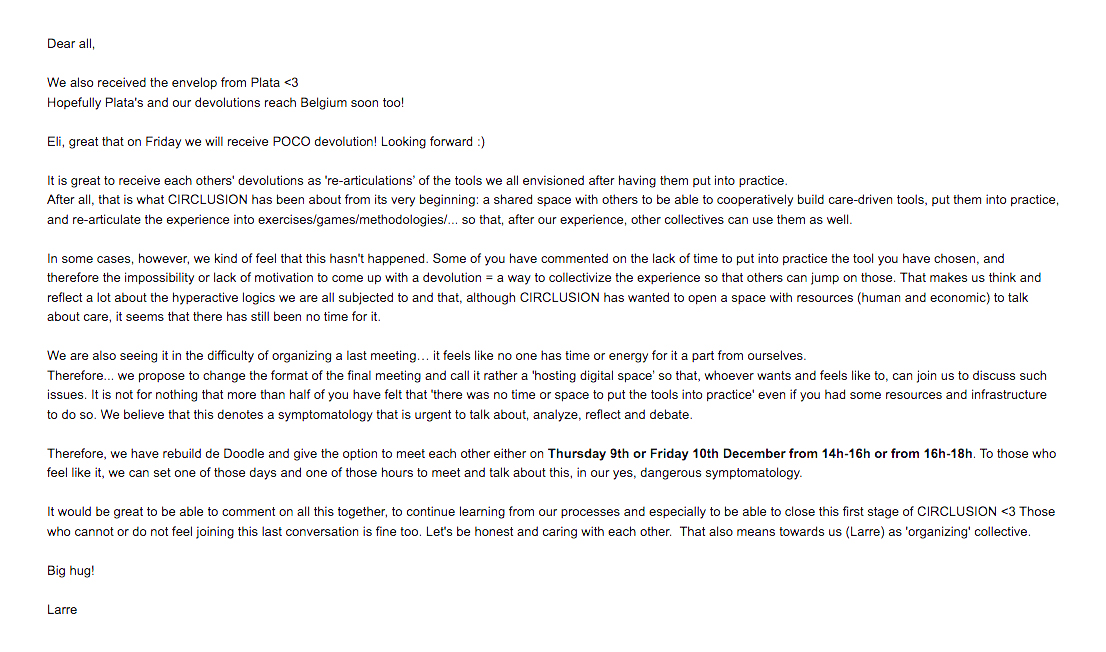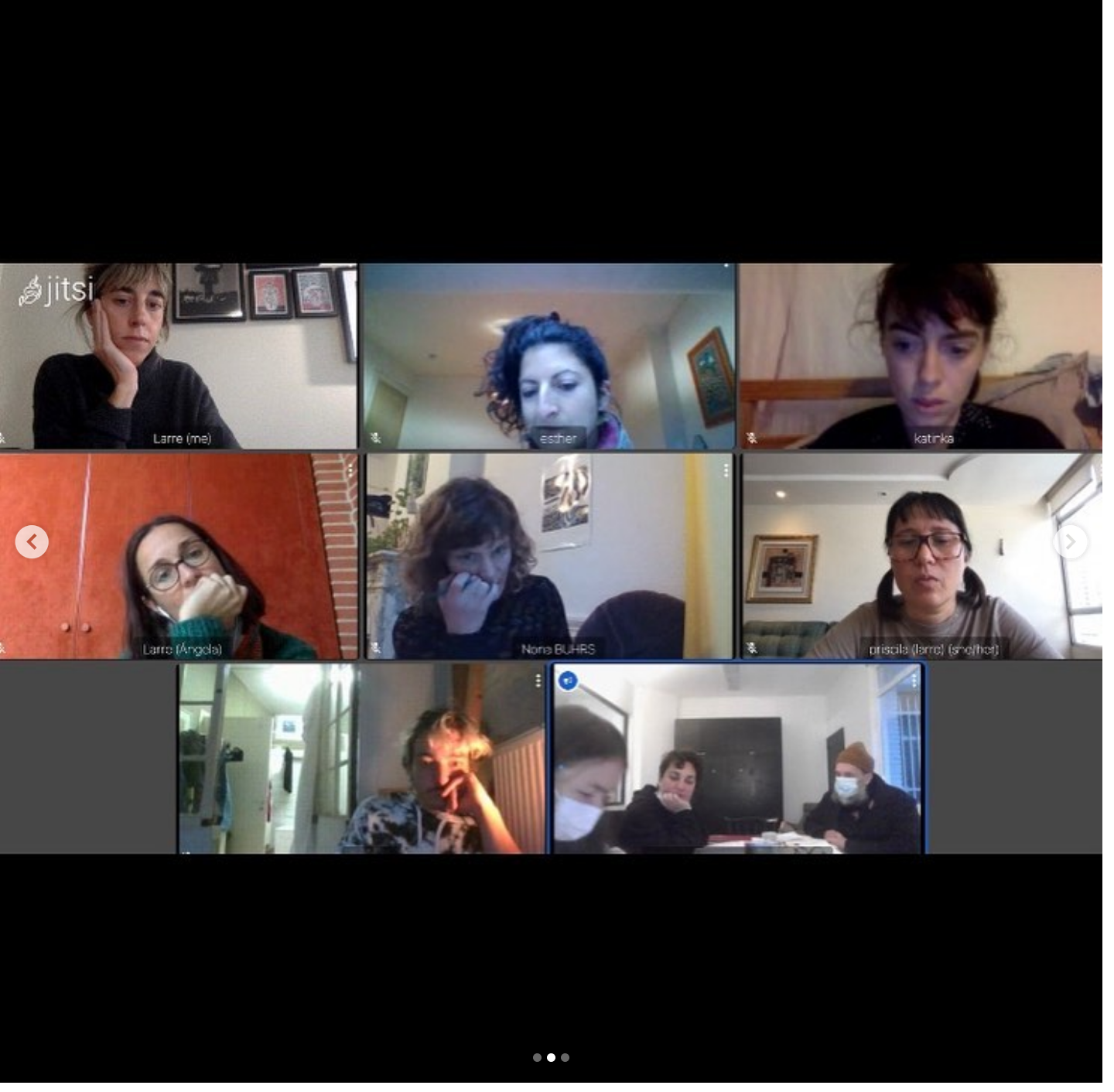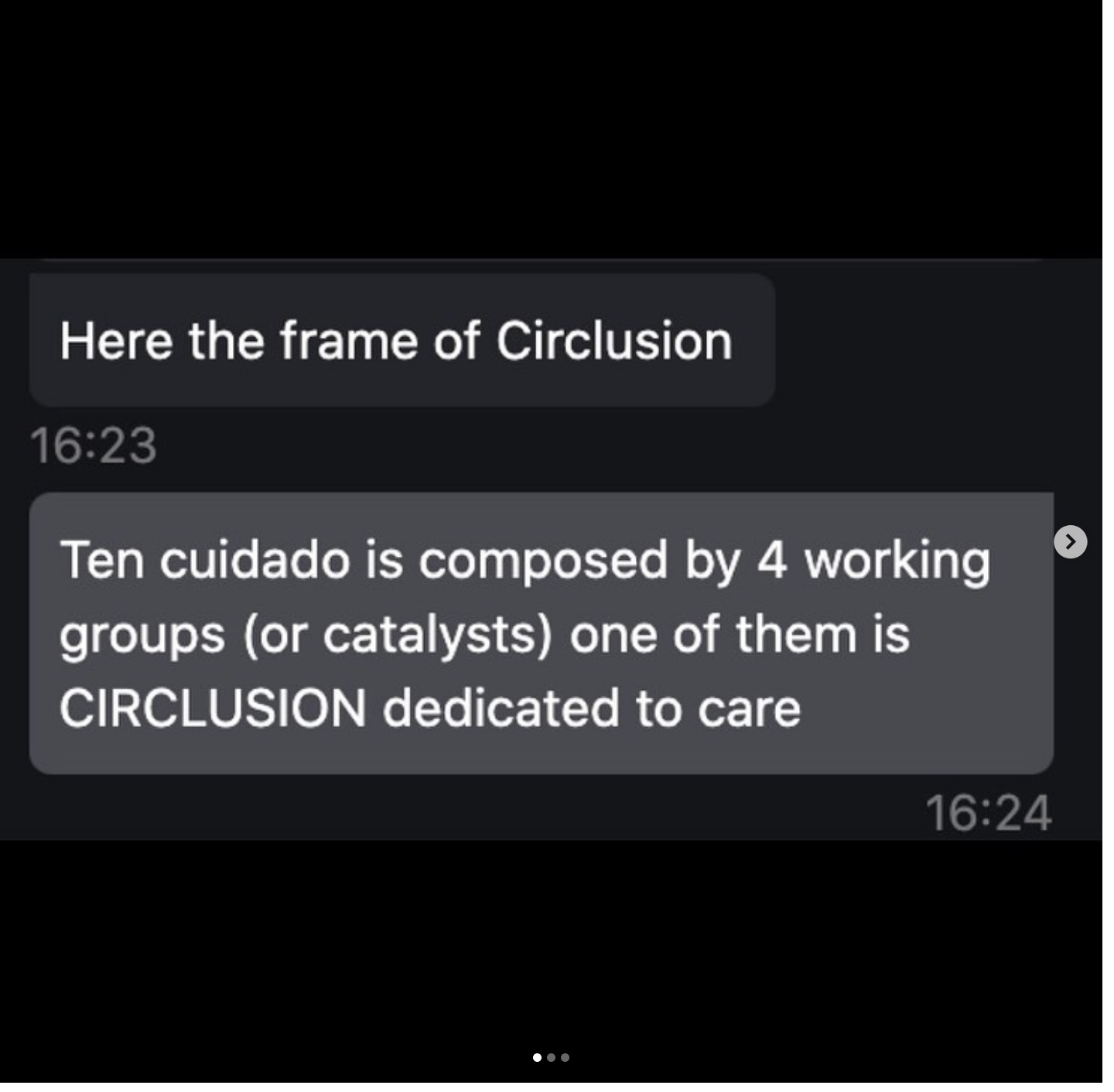We created a common space in the (Un)SCREWING-CARE seminar (phase 1) and got together in the Circlusion session (phase 2) to co-create and consolidate tools that could help us put care into practice in cultural organisations and/or artistic practices. Now we once again convene all the collectives participating in Catalyst Circlusion for a third phase that we have called Circluding Circlusion.
The purpose in this third and final phase of the Catalyst was sharing the experiences of each collective with the tool(s) each one took with them in their carrier bag, having the mission of putting it/them into practice in their contexts and with their community(ies) for a period of about three-four months. Thus, after a very first use of the tools in each of their socio-political contexts, it was suggested to elaborate an interdisciplinary formalisation that would account for the collectives’ own and situated experience with the use of the tool(s), its translations and/or rearticulations, with the aim of being able to share this with other organisations, collectives and institutions from a variety of fields.
Circluding Circlusion is a meeting intended to share our thoughts on the formalisations of each experience, to discuss and share lessons learned, mistakes and complexities of putting the tools into practice.
In relation to this process, it is important to mention and consider one of the symptoms that walked with us during this last phase, in which three out of six participating groups conveyed the impossibility of putting the chosen tool into practice in their own context and/or community. Therefore, they were not able to share their thoughts on the experiences. This symptom can be summed up as follows:
‘THERE WAS NO TIME TO DO IT’

If there is no time to verify the effectiveness of care put into practice, it is difficult to estimate its potential as a tool with which to organise our collectives and/or self-managed spaces.
Thinking here with Joan Tronto, a key figure of the second wave of the ethics of care, we feel that there is a lack of the necessary resources to be able to generate, together, ‘an explicit locus for the needs-interpretation struggle—that is […] a political space within which this essential part of caring can occur’ (Tronto, 2013).
However, we would like to mention here that the precarious hyperactivity to which we are structurally subjected sneaks into the cultural sector as one of the worst enemies preventing care becoming a tool for questioning, even when we have resources and spaces for it, as was the case for Catalizadora Circlusion.



We wrap this Catalyst Circlusion process up with some final questions:
How far are we willing to go so that care put into practice could question us?
Why does care continue to be the least of our problems regarding collective chores even having resources and spaces for it?
Can care coexist with the productivist hyperactivity into which the cultural sector has been plunged?
Should we focus on our own management and coordination of organisational and community priorities in the first place?